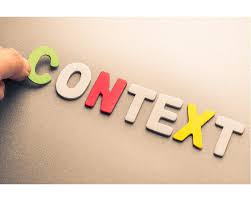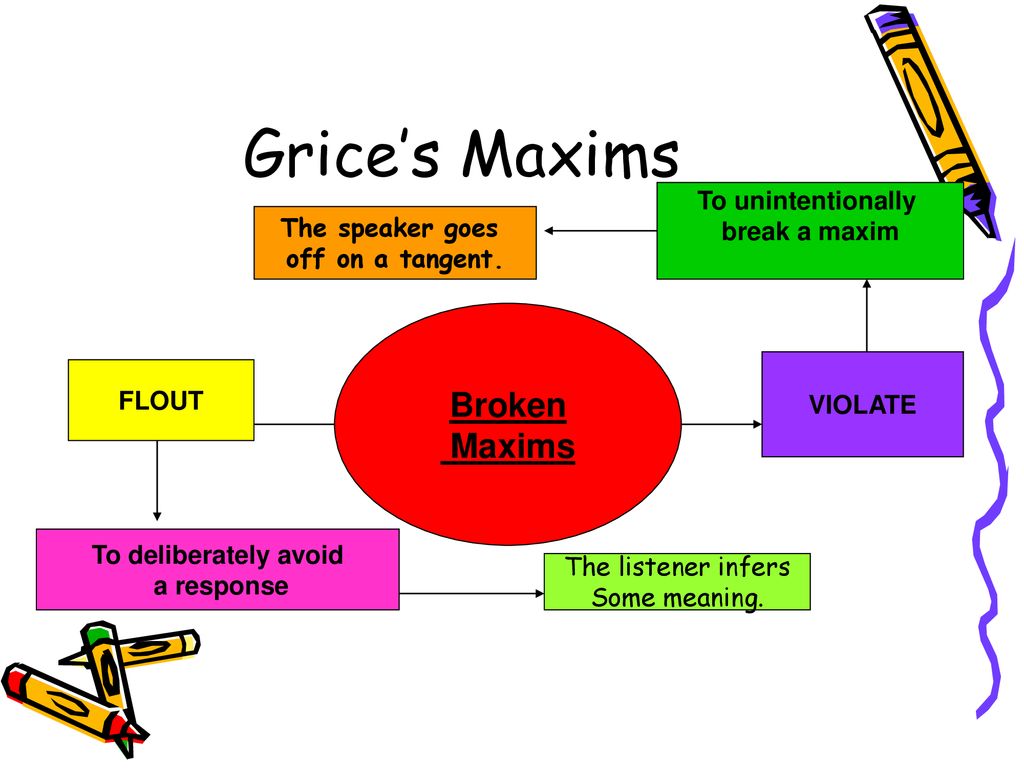2023/2024 PRAGMATICS
Topic outline
-
Pragmatics is a sub-field of linguistics, which looks at meanings of utterances in context ; it is often discussed in contrast with the sub-field of semantics which is the study of meaning as part of the language system.
According to Yule (1996), pragmatics is the study of the relationships between linguistic forms and the user of those forms. Through this study, one can talk about people's intended meanings, their assumptions, their purposes or goals, and the kinds of actions that they are performing when they speak because pragmatics allows humans as the language user into language analysis. In line with Yule's definition, Crystal (in Barron, 2003: 7) defines pragmatics as the study of language from the point of view of the users, especially the choices they make, the constraints they encounter in using language in social interaction, and the effects their use of language has on the other participants in an act of communication
-
File
-
Forum
-
-
 Teacher: Aboubakr Hamoudi
Teacher: Aboubakr Hamoudi- Email: aboubakr.hamoudi@univ-msila.dz
- module: Pragmatics
- Credits: 3
- Coefficient: 1
- Number of required hours for this lesson: 15 hours
- Number of hours per week: 1h and 30 mn
- Assessment modality: formative evaluation + summative evaluation
- Tutoring schedule: every Sunday from 9.30 to 11
-
Chat
-
Forum
-
This course is dedicated to second year Master (Linguistics) students as part of Pragmatics
 module.
module. -
 Based on
the general aims of this course, some objectives as a whole are set out. These
are the things you should be able to do by the time you complete the course. If
you are able to meet the objective, you would have achieved the aims of the
course. The course sets out to help you.
Based on
the general aims of this course, some objectives as a whole are set out. These
are the things you should be able to do by the time you complete the course. If
you are able to meet the objective, you would have achieved the aims of the
course. The course sets out to help you.Ø Explain the meaning of pragmatics as a sociolinguistic study and the difference between pragmatics and semantics
Ø Describe the influence of the context comprising social assumptions, values, conventions or world view on speakers and hearers
Ø Explain such concepts as speech acts, politeness, conversational principles or implicature.
Ø Discuss at least one theory of pragmatics and how it has enabled you to understand better the functions of language in the context of people and situations
Ø Apply the knowledge gained to communicate effectively in different social contexts, especially applying such concepts as politeness, indirectly speech act or indexicals in social communication
Ø Participate in further studies and research in pragmatics
-
Students must have prior
 knowledge of :
knowledge of :
what linguistics is and what its different fields and sub-fields are. -
- Lecture01: Open Doors
- Lecture02: Context in Language Use
- Lecture03: Grice’s Cooperative Principle and the Theory of
Implicature
- Lecture04: Speech Acts
- Lecture05: Politness
-

“…within the history of linguistics,
pragmatics is a remedial discipline born, or reborn, of the starkly limited scope of Chomskyan linguistics (while in philosophy, the interest in
language use can in part be attributed to ‘language reformism’). Pragmatics prior to 1957, it could be argued, was practised […] without being preached.”
Stephen Levinson, Pragmatics-
File
-
Forum
-
Quiz
-
-

“con” designates “together‟ and
“texere” which means “to weave‟.
Therefore, context means “weaving together‟
Wan (2009)
-
Forum
-
Quiz
-
 Objectives:
Objectives:1. identify Grice's maxims in conversation
2. interpret implicature
3. detect any violations of the four maxims
-
Forum
-
Glossary
-
Quiz
-
 John Austin (1962, also Searle, 1969) recognised that language is a tool
for performing actions. Therefore, the “meaning” we associate with an utterance
is the user’s intention, and not the meaning of words in the utterance. If we
study a user’s intention, we are studying what s/he does with words, in either
speech or writing. Austin postulates that when an individual makes an
utterance, s/he performs some “speech acts” such as requesting, questioning,
pronouncing, informing etc. This implies that rather than talk of linguistic forms
of the utterance, we talk of the functions of these forms.
John Austin (1962, also Searle, 1969) recognised that language is a tool
for performing actions. Therefore, the “meaning” we associate with an utterance
is the user’s intention, and not the meaning of words in the utterance. If we
study a user’s intention, we are studying what s/he does with words, in either
speech or writing. Austin postulates that when an individual makes an
utterance, s/he performs some “speech acts” such as requesting, questioning,
pronouncing, informing etc. This implies that rather than talk of linguistic forms
of the utterance, we talk of the functions of these forms.-
Forum
-

As many other concepts in Pragmatics and Discourse Analysis, the concept of politeness is not easy to define. There is a surprising amount of disagreement as to the criteria used to define it. Nevertheless, it has become an essential part of the knowledge required to analyze discourse. Watts (2003) notes that, when people are asked what they imagine polite behavior to be, their usual way out of the dilemma is to resort to giving examples of behavior which they, personally, would consider “polite”, such as “He always shows a lot of respect towards his superiors” or “She’s always very helpful and obliging.” Watts also remarks that “there are even people who classify polite behaviour negatively, characterizing it with such terms as ‘standoffish’, ‘haughty’, ‘insincere’, etc.” (2003:1). However, politeness as a linguistic phenomenon has been researched by looking at it from wider perspectives than those attached to the everyday use of the term.
-
Forum
-
Grice, H. P. (1989). Studies in the Way of Words. Cambridge: Harvard University Press.
Searle, J.R. (1965). What is a speech act?. In Black, M. (Ed.) Philosophy in America. New York: Cornell University Press, 221-239.Yule, G. (1996). Pragmatics. Oxford: Oxford University Press
